I am surprised by the number of people who do or say something and then fail to take accountability or responsibility for the results of those actions or words. Often they will shift or deflect blame onto someone else or they create a narrative that fits their ‘reality.’ Take for example the students in the story The Ultimate Test:
One night, four college students stayed up late partying, even though they knew they had a test the next day. The next morning, they came up with a plan to get out of having to take their test.
Each student rolled around in dirt and then went to the teacher’s office.
They told the teacher that they had gotten a flat tire the night before, and they spent the entire night pushing their car back to campus. The teacher listened, and to the students’ delight, he offered a retest three days later.
On the day of the test, the students went to their teacher’s office. The teacher put all four of the students in separate rooms to take the test. The students were okay with that because they had been given a chance to study.
The test had 2 questions:
1) Your Name __________ (1 Point)
2) Which tire was flat? __________ (99 Points)
- Front Right
- Front Left
- Back Right
- Back Left
Of course, the moral of this story is about the need to take responsibility for one’s actions. When we take responsibility for our actions we do not:
- blame others for what we did or said
- blame others for our mistakes
- deny the role we played in the situation
- make excuses
- spin a narrative that fits our reality
- complain about the situation or the present moment
What we do when we take responsibility for our actions is own up to the results of whatever was said or done. We take whatever consequences we have coming. We work to rectify the situation. When we hold ourselves accountable, we inspire everyone to take responsibility for their actions and to follow through on their commitments. When this happens, we reap benefits such as:
- Peace of mind
- Stronger and healthier bonds with others
- A reduction in stress and conflict
- A more meaningful and fulfilling life
- Clearer priorities
- Increased confidence and motivation
- Higher levels of trust (especially earned when errors are owned and acknowledged)
- Credibility
- Mutual respect
We can all help create an “accountable personal environment” by:
- Making accountability one of our values
- Focusing on being the best we can be
- Making a commitment to own our words and deeds
- Taking responsibility for decisions
- Celebrating successes
- Learning from our mistakes
- Being trustworthy
- Seeking feedback (both positive and constructive)
- Having an “accountability touchstone” (a person we can turn to for advice, suggestions, and feedback)
- Being realistic in expectations
- Having clear, defined goals
Remember, accountability starts with us. If we want others to take responsibility for what they say and do, we must walk the talk. As Brian P. Moran (leadership speaker, author, and productivity expert) says, “Accountability is not consequences, but ownership. It is a character trait, a life stance, a willingness to own your actions and results regardless of the circumstances.” Let’s all do our part to make ourselves and those around us more personally accountable for what we say and do.
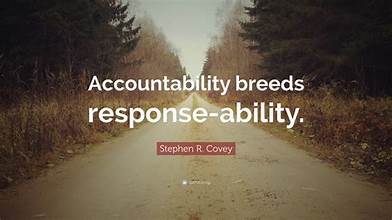
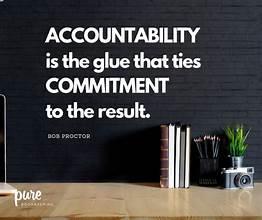
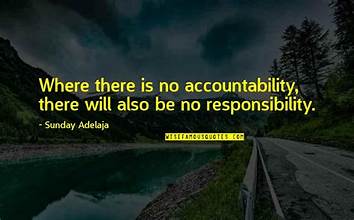
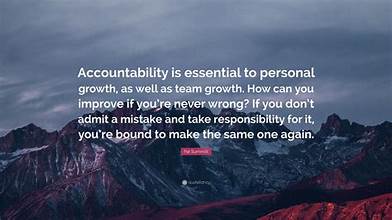
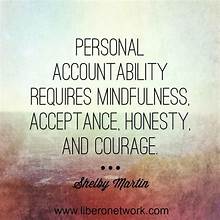
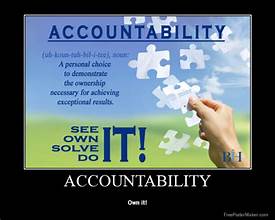
Dr. Johnen. Good remidner that we will survive consequences of poor decision. It is fascinating to me that organization and setting priorities seems to “come naturally” to some and others struggle. Hummmm…